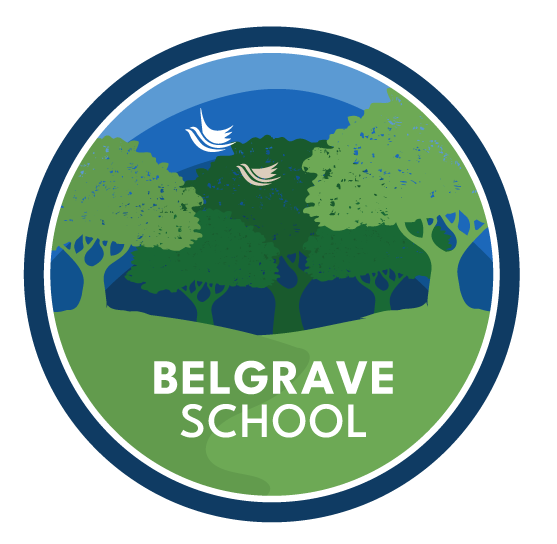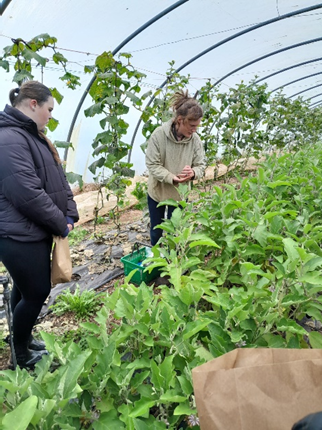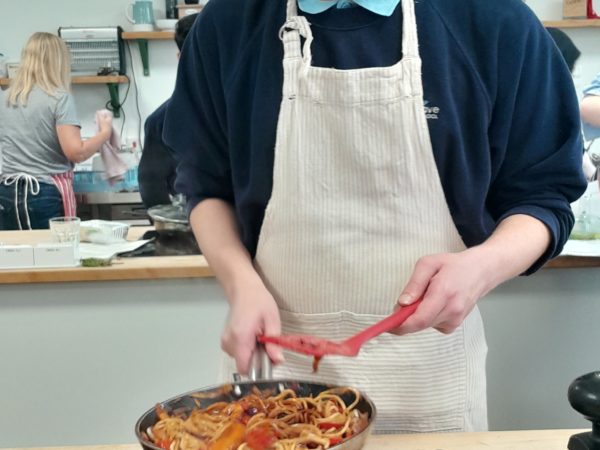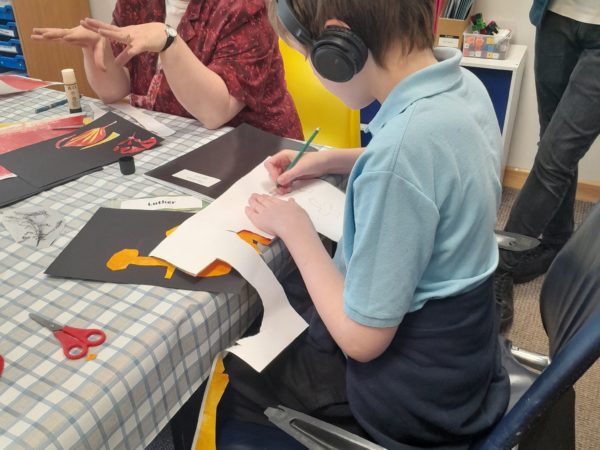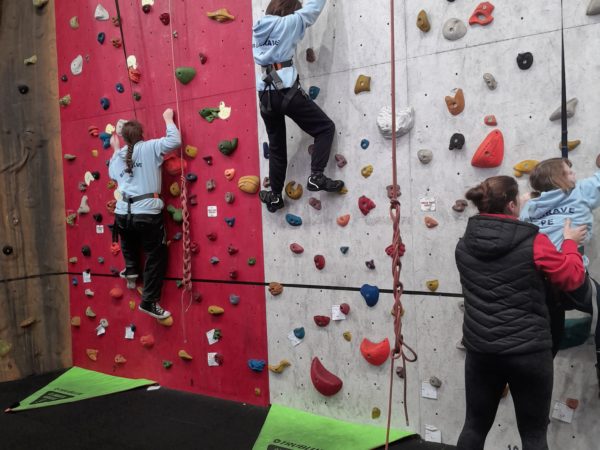Applying for a Place at our School
To join our school, your child must have an Education, Health and Care Plan (EHCP) in place. Learners who are identified as having additional needs but do not yet have an EHCP, will need to undergo the Education, Health and Care Assessment Request (ECHAR) process through the local authority.
We have a formal admissions procedure which is outlined in our Admissions Policy and which ensures we are able to meet a learner’s needs.
Our school works with learners aged between 6 and 16 who have special educational needs mainly within the areas of SpLD (dyslexia) and associated issues, including Developmental Coordination Disorder (dyspraxia), dyscalculia, dysgraphia, slow processing, sensory processing disorder and poor working memory.
Learners can join our school at any time during the school year and will follow a personalised curriculum package to meet their individual needs.
Our caring and committed staff team will spend time getting to know you and your child during a carefully planned transition, to ensure they feel safe, settled, secure, and ready to learn.
Book a personalised tour of our school using our Book a Visit button. Or, alternatively, contact your current provision or Local Authority SEND Co-ordinator for more information about joining our unique and special school.
To read our Admissions Policy, please visit our Policies Page
Learner Case Studies
We love to celebrate our learners’ successes and achievements! We are proud to share with you some of the stories of how the school and our incredible team have supported learners to fulfil their potential. Learner names have been changed to ensure learners’ confidentiality is maintained.
Jeremy – Dyslexia and Low Self-Esteem
Challenges Before Joining the School:
Jeremy, a 13-year-old learner, arrived at our school with a diagnosis of dyslexia and a history of academic underachievement. He had developed significant anxiety around reading and writing tasks, often refusing to participate in class. His self-esteem was very low, and he believed he was “stupid” compared to his peers. Previous schools had not provided the specialist support he needed and as a result had becoming disengaged and increasingly withdrawn, eventually he started school refusing.
Support Provided by the School:
Upon joining, Jeremy was assessed by our specialist literacy team and placed on a personalised intervention program. He received daily one-to-one multisensory literacy sessions using the Orton-Gillingham approach. Assistive technology, such as text-to-speech software and audiobooks, was introduced to support his access to the curriculum. He also participated in weekly sessions with our school counsellor to build confidence and address his anxiety.
Achievements and Milestones:
Jeremy has made remarkable progress. He has improved by two reading levels in one academic year and now contributes confidently to class discussions. He recently wrote and presented a short story to his peers using speech-to-text software, a milestone that was celebrated school-wide. His confidence has soared, and he now mentors younger learners with similar challenges, becoming a role model in the school community.
Amina – ADHD and Sensory Processing Difficulties
Challenges Before Joining the School:
Amina, aged 10, was diagnosed with ADHD and sensory processing difficulties. In mainstream settings, she struggled with attention, impulsivity, and sensory overload, often leading to meltdowns and exclusion from class. Her learning was significantly disrupted, and she had difficulty forming friendships due to her unpredictable behaviour.
Support Provided by the School:
Our school created a structured, low stimulation learning environment tailored to Amina’s needs. She was given access to a sensory space and a personalised sensory diet developed by our occupational therapist. Her timetable included frequent movement breaks and visual timetables to support transitions. Amina also worked closely with a learning mentor who helped her develop self-regulation strategies and social skills.
Achievements and Milestones:
Since joining, Amina has shown significant improvements in focus and emotional regulation. She now participates in group activities and has formed strong friendships. Academically, she has progressed in reading and maths, and recently completed a group science project with enthusiasm and leadership. Her parents report a dramatic improvement in her behaviour and happiness at home.
Leo – Autism Spectrum Condition (ASC) with Selective Mutism
Challenges Before Joining the School:
Leo, a 15-year-old learner with ASC and selective mutism, had not spoken in an educational setting for over three years. He experienced extreme anxiety in social situations and was unable to engage in classroom learning. His previous school struggled to accommodate his communication needs, and he was at risk of becoming NEET (Not in Education, Employment, or Training).
Support Provided by the School:
Leo’s transition was carefully managed with a phased integration plan. He was given a quiet, low-pressure environment and access to a communication support worker. Staff used alternative communication methods such as visual aids, written instructions, and other communication devices overseen by our Speech therapist. Over time, Leo was introduced to a small peer group through playing games and supported through social stories and role-play to build comfort.
Achievements and Milestones:
Leo has made extraordinary progress. He now communicates using a combination of speech and assistive technology and has begun participating in small group discussions. He recently completed a work experience placement at a local library, where he interacted with staff and customers. Leo is now working towards his GCSEs and has expressed interest in pursuing a career in IT.
Jackson – Autism, Dyslexia, and Identity Acceptance
Challenges Before Joining the School:
Jackson, a 14-year-old learner, struggled to accept his diagnoses of autism and dyslexia. He believed that returning to mainstream education, where he was not accessing any learning, would mean he had “cured” his conditions. This misunderstanding led to disengagement, low self-esteem, and a reluctance to accept support. Jackson was at risk of becoming isolated and disconnected from education altogether.
Support Provided by the School:
We worked closely with Jackson and his family to build a supportive and trusting relationship. Through regular conversations and keyworker sessions, we explored Jackson’s interests and future aspirations. Catering emerged as a strong passion, and we used this as a foundation for a bespoke learning pathway. Jackson began helping the school cook prepare morning snacks for the whole school such as homemade salsa and cheese scones, giving him a sense of purpose and routine. He also attends a Home Cooking course off-site, where he learns from a professional chef in a real kitchen environment.
Achievements and Milestones:
Jackson has made impressive progress in self-esteem, confidence, and engagement. He is now a valued member of the school community, known for his reliability and enthusiasm in the kitchen. His communication skills have improved, and he takes pride in sharing his culinary creations with staff and peers. Jackson has set his sights on attending college to study catering, and this clear, interest-driven goal has become a powerful motivator. He now embraces his identity with greater confidence and is thriving in an environment that celebrates his individuality and talents.
Testimonials
“For us as parents we were able to breathe a sigh of relief that he was among professionals and peers that understood who our son was and did not treat him like he was a problem.“
“Since day one at Belgrave we as a family actually saw a physical as well as a mental change in our son. When we secretly observed him, when we had meetings at the school we could see his engagement. All a massive contrast to his previous experience.“
“What Belgrave did for our son was to give him space to be himself and no longer be fearful.“
“One of the key strengths of Belgrave is not that it’s just a small school it’s a shared appreciation of individualism and the strength that can be derived by developing children’s confidence and empowering them to believe in themselves so they can learn.”
“I have often heard parents in the playground saying they don’t know what they would have done if they hadn’t got their child into Belgrave. I have said this myself many times and heard it echoed by all members of our family.“
“I firmly believe that mini miracles happen every day in this school from the child who wouldn’t talk to anyone being able to make friends, to a child whose mainstream school felt they’d never learn to read (they are managing rather well with the Biff and Chip books now and he is so proud of himself)!“
“Belgrave isn’t just about a pupils education, they care deeply about welfare, happiness, positive attitude, confidence.“
“Belgrave is a community, the staff and teachers are just as interested in the families of their students, when you have a child in the cocoon of this school you are automatically included. This makes Belgrave a hugely happy and positive place to be which gives all parents the confidence to merrily wave their child off in the morning knowing their offspring will be in the very best of hands whilst they are away from them.“
“Thank you for believing in our son and helping him to re-engage in learning. We have been amazed to see the transformation in him into a calm and happy child willing to learn.“
“We are truly amazed at the breakthrough and progress our daughter has made. When she came to you she was more than 2.5years behind with reading. Over the last two terms she is now reading, she has at least kept pace and possibly closed the gap a little and her progress has been outstanding.“
“In her time spent at Belgrave our daughter has transitioned from a depressed, highly anxious, broken spirited child with low self-esteem to a bright young happy girl that loves school, is willing and able to take part in group activities and has a great future working at her best.“
“The school deserves far more recognition for the miraculous work it carries out for those few lucky enough to attend.“
“Your holistic approach to the mental and social wellbeing of the child should be an example for all education systems. It’s not rocket science but it appears you have cornered that particular market.“
“The whole team go above and beyond.“
